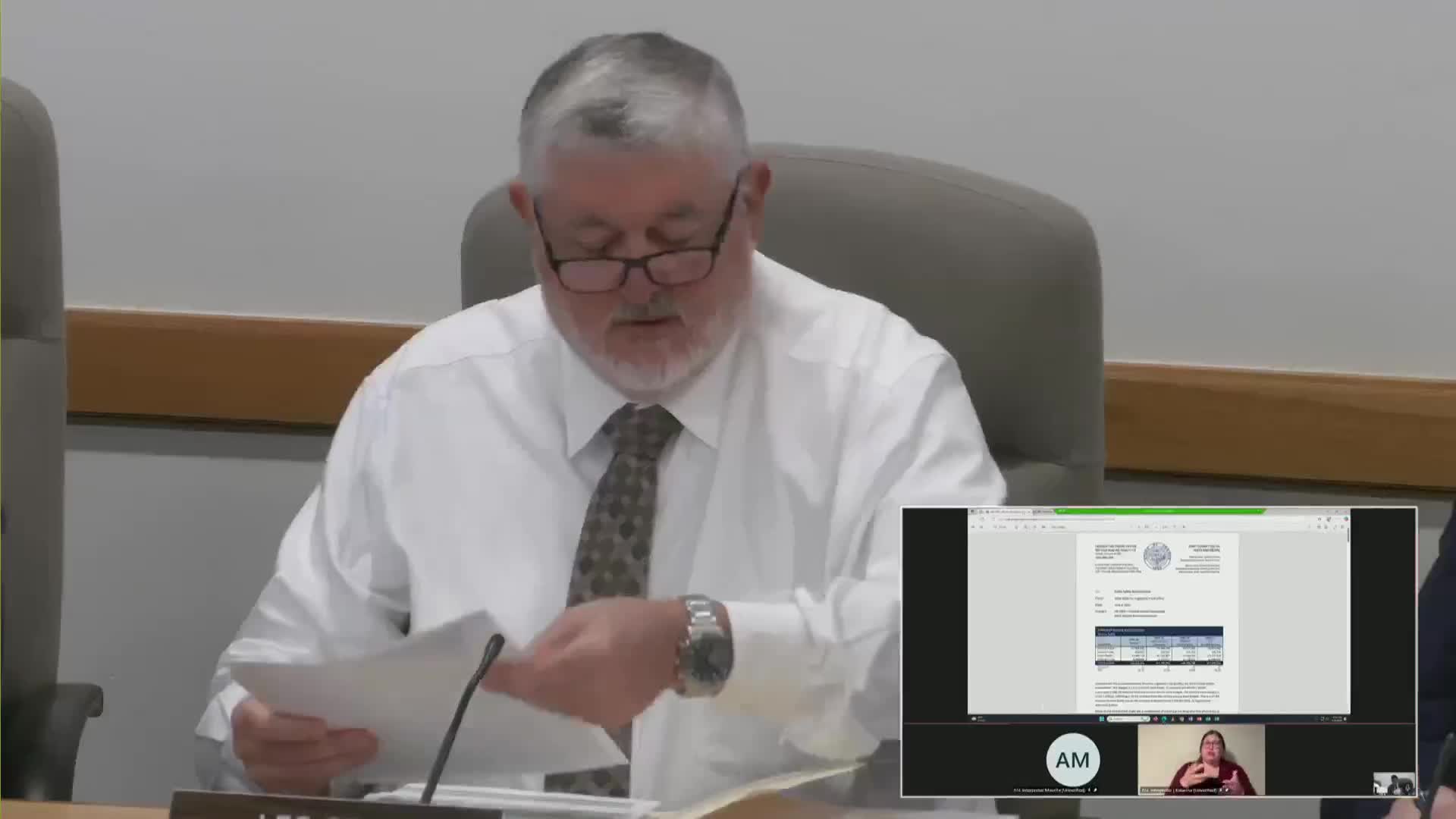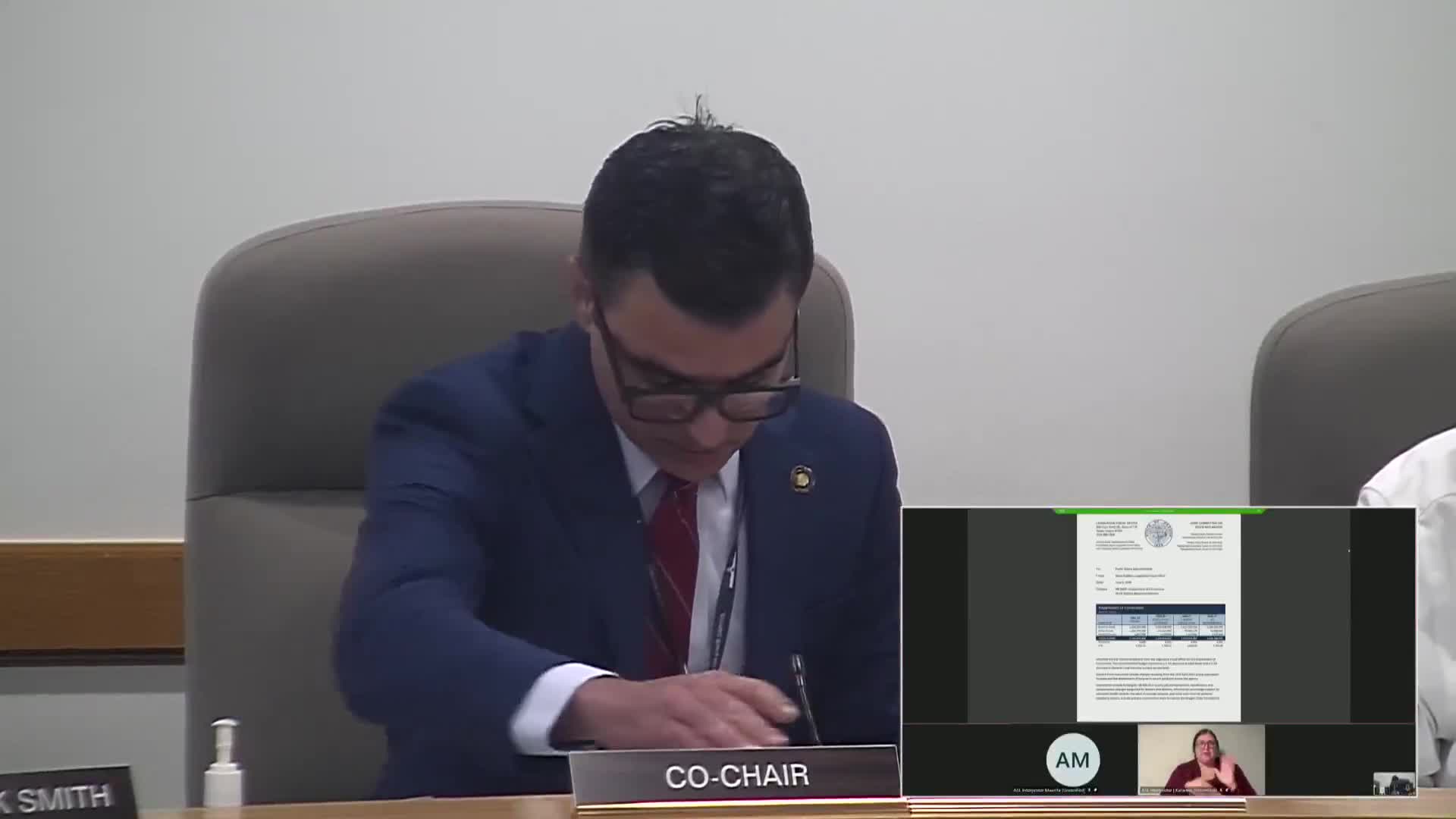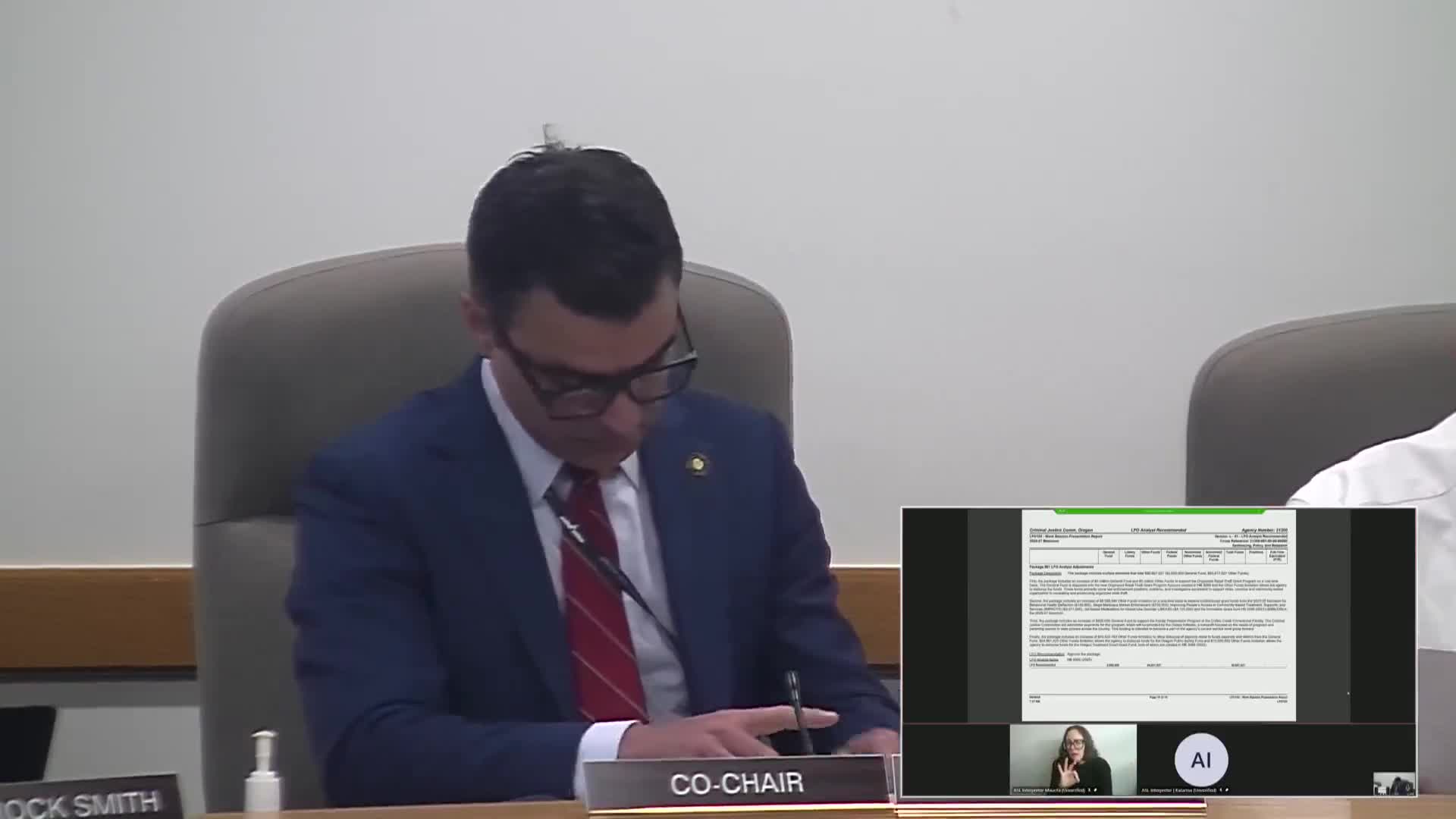Article not found
This article is no longer available. But don't worry—we've gathered other articles that discuss the same topic.

Criminal Justice Commission budget includes $40 million for behavioral health deflection grants; some enforcement grant components dropped

Public Safety subcommittee advances $2.64 billion DOC budget, approves $3 million study on replacing Oregon State Penitentiary

